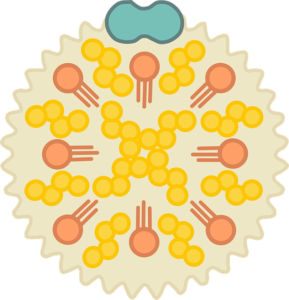Egg Nutrition Facts: Why Eggs Are One of the Healthiest Foods on the Planet
Egg Nutrition Facts: Why Eggs Are One of the Healthiest Foods on the Planet
Eggs are a staple food in many cuisines and cultures around the world. They are versatile, delicious, and easy to prepare. But did you know that eggs are also one of the most nutritious foods on the planet? In this blog post, we will explore the egg nutrition facts and benefits that make eggs a superfood for your health.

- Nutrients in Eggs
Eggs are a complete protein source, meaning they contain all nine essential amino acids that your body cannot produce on its own. Amino acids are the building blocks of proteins, which are vital for the growth and repair of your muscles, tissues, and organs. One large egg (50 grams) provides about 6.5 grams of protein, which is 13% of the recommended daily intake for adults.
Eggs are also rich in healthy fats, especially monounsaturated and polyunsaturated fats, which can help lower your bad cholesterol (LDL) and raise your good cholesterol (HDL). These fats also support your brain function, hormone production, and inflammation control. One large egg contains about 5 grams of fat, of which 1.6 grams are saturated, 2 grams are monounsaturated, and 0.7 grams are polyunsaturated1.

Eggs are a great source of several vitamins and minerals that are essential for your health. Some of the most notable ones are:
- Vitamin A is important for your vision, skin, and immune system. One large egg provides 8% of the daily value (DV) for vitamin A1.
- Vitamin B12: This vitamin is crucial for your red blood cell formation, nerve function, and DNA synthesis. One large egg provides 23% of the DV for vitamin B121.
- Folate: This vitamin is necessary for cell division, DNA repair, and fetal development. One large egg provides 6% of the DV for folate1.
- Choline: This nutrient is involved in your brain development, memory, and liver function. One large egg provides 147 mg of choline, which is 27% of the adequate intake (AI) for adults12.
- Selenium: This mineral is a powerful antioxidant that protects your cells from oxidative stress and supports your thyroid function. One large egg provides 28% of the DV for selenium1.
Eggs also contain other important nutrients, such as vitamin D, vitamin E, riboflavin, pantothenic acid, iron, calcium, phosphorus, zinc, and iodine. Additionally, eggs are one of the few natural sources of vitamin D, which is essential for your bone health and immune system. One large egg provides 43.5 IU of vitamin D, which is 11% of the DV1.

- The Health Benefits of Eggs
Eating eggs can provide you with many health benefits, such as:
- Improving your muscle mass and strength: Eggs are a high-quality protein source that can help you build and maintain your muscle mass and strength. Studies have shown that eating eggs can enhance your muscle protein synthesis, especially when combined with resistance training34.
- Supporting your weight loss and management: Eggs are a low-calorie and high-satiety food that can help you feel full and satisfied for longer. This can reduce your hunger and calorie intake, which can aid your weight loss and management. Research has shown that eating eggs for breakfast can increase your satiety and decrease your food intake throughout the day compared to other breakfast options56.

- Boosting your brain function and mood: Eggs are a rich source of choline, which is a key component of the neurotransmitter acetylcholine. Acetylcholine is responsible for your memory, learning, and mood regulation. Studies have suggested that eating eggs can improve your cognitive performance and mood, especially in older adults and pregnant women78.
- Protecting your eye health and vision: Eggs contain two carotenoids, lutein and zeaxanthin, which are concentrated in your retina. These carotenoids act as antioxidants and filters that protect your eyes from harmful blue light and oxidative damage. Studies have indicated that eating eggs can increase your blood levels of lutein and zeaxanthin, which can lower your risk of age-related macular degeneration (AMD) and cataracts910.
- How to Eat Eggs for Optimal Nutrition and Health?
Eggs are a versatile food that can be enjoyed in many ways, such as boiled, scrambled, fried, poached, or baked. However, some cooking methods may affect the nutritional quality and health effects of eggs. Here are some tips for eating eggs for optimal nutrition and health:
- Choose organic, pasture-raised, or omega-3 enriched eggs: These types of eggs may have higher levels of omega-3 fatty acids, vitamin A, vitamin E, and antioxidants than conventional eggs. Omega-3 fatty acids are beneficial for your heart, brain, and inflammation. Vitamins A and E are important for your skin, immune system, and eye health. Antioxidants can protect your cells from oxidative stress and aging11 .
- How to eat eggs for optimal nutrition and health?: These types of eggs may have higher levels of omega-3 fatty acids, vitamin A, vitamin E, and antioxidants than conventional eggs. Omega-3 fatty acids are beneficial for your heart, brain, and inflammation. Vitamins A and E are important for your skin, immune system, and eye health. Antioxidants can protect your cells from oxidative stress and aging11 .
- Cook your eggs with minimal added fat and salt: Cooking your eggs with excessive amounts of fat and salt can increase your calorie and sodium intake, which may negatively affect your weight and blood pressure. Instead, use healthy oils, such as olive or avocado oil, in moderate amounts, and season your eggs with herbs, spices, or low-sodium sauces.
- Avoid overcooking your eggs: Overcooking your eggs can reduce the bioavailability of some nutrients, such as protein, choline, and lutein. It can also increase the formation of cholesterol oxidation products (COPs), which are harmful compounds that may increase your risk of cardiovascular disease and cancer. To minimize the formation of COPs, cook your eggs at lower temperatures and for shorter durations.
- Eat your eggs with other nutritious foods: Eating your eggs with other nutritious foods can enhance the absorption and utilization of some nutrients, such as iron, vitamin D, and carotenoids. For example, eating eggs with foods rich in vitamin C, such as citrus fruits, tomatoes, or peppers, can increase your iron absorption. Eating eggs with foods high in fat, such as cheese, nuts, or avocado, can increase your vitamin D and carotenoid absorption.

Eggs with other Nutrients
- How Many Eggs to Eat Daily?
Eggs are a nutritious and healthy food that can be part of a balanced diet. However, some people may be concerned about the cholesterol content of eggs and its impact on their blood cholesterol levels and heart health. The good news is that for most healthy individuals, eating eggs does not adversely affect their blood cholesterol levels or increase their risk of heart disease. In fact, some studies have shown that eating eggs may improve your blood lipid profile and lower your risk of stroke.
The American Heart Association (AHA) recommends limiting your dietary cholesterol intake to less than 300 mg per day, which is equivalent to about two large eggs. However, this recommendation is based on the assumption that dietary cholesterol has a significant effect on blood cholesterol levels, which is not supported by the current evidence. Therefore, some experts suggest that healthy individuals can eat more than two eggs per day without adverse effects on their cholesterol levels or heart health.
However, this does not mean that you can eat unlimited eggs per day. Eggs are still a source of calories, fat, and saturated fat, which can affect your weight and health if consumed in excess. Moreover, some people may be more sensitive to the cholesterol-raising effects of eggs, such as those with diabetes, metabolic syndrome, or familial hypercholesterolemia. These people may need to limit their egg intake to avoid potential complications.

Therefore, the optimal number of eggs you can eat per day depends on your individual health status, dietary pattern, and preferences. As a general guideline, you can aim for about one to three eggs per day, depending on your calorie and nutrient needs. However, if you have any medical conditions or concerns, you should consult your doctor Eating eggs in winter is considered more beneficial/essential because eggs are a rich source of protein, healthy fats, vitamins, and minerals that can help boost your immunity, energy, and metabolism. Eggs can also help you stay warm, hydrated, and nourished in the cold and dry weather. Here are some of the reasons why eating eggs in winter is good for you:
- Eggs can help you fight infections and diseases. Eggs contain various nutrients and compounds that can strengthen your immune system and protect you from common colds, flu, and other illnesses. For example, eggs are one of the few natural sources of vitamin D, which is essential for your bone health and immune system. However, the amount of vitamin D in eggs varies depending on the exposure to sunlight or the feed of the chicken1. Eggs also have antibacterial and anti-inflammatory properties that can help fight infections and soothe irritated skin2.
- Eggs can help you lose weight and maintain a healthy weight. Eggs are a low-calorie and high-satiety food that can reduce your hunger and calorie intake. Eating eggs for breakfast can increase your satiety and decrease your food intake throughout the day1. Eggs can also help you burn more calories and fat, as they have a high thermic effect, meaning they require more energy to digest and metabolize than other foods3.
- Eggs can help you improve your brain function and mood. Eggs are a rich source of choline, a key component of the neurotransmitter acetylcholine. Acetylcholine is responsible for your memory, learning, and mood regulation1. Eggs also contain tryptophan, an amino acid that can help produce serotonin, a hormone that can improve your mood and well-being4.
- Eggs can help you protect your eye health and vision. Eggs contain two carotenoids, lutein and zeaxanthin, which are concentrated in your retina. These carotenoids act as antioxidants and filters that protect your eyes from harmful blue light and oxidative damage1. Eggs can also help prevent or delay age-related macular degeneration, a leading cause of blindness in older adults5.
- Eggs can help you hydrate and nourish your skin. Eggs have a high water content, which can help you stay hydrated and prevent dryness and dehydration in winter. Eggs also have fats, vitamins, and minerals that can moisturize and nourish your skin, and improve its elasticity and firmness. Eggs can also help heal acne scars and hyperpigmentation, as they have calcium, which can help regenerate skin cells.
These are some of the benefits of eating eggs in winter. However, you should also be aware of the potential risks of eating eggs, such as allergies, cholesterol, and salmonella. You should consult your doctor before eating eggs if you have any medical conditions or concerns. You should also eat eggs in moderation and choose organic, pastured, or omega-3-enriched eggs for better quality and nutrition. You can find more information about eggs and their benefits in these UPCOMING articles: Proven Health Benefits of Eating Eggs, Seven Benefits of Having Eggs in Winter, 5 Reasons to Eat Eggs in Winters, and Eating Two Eggs Daily in Winter prevents Vitamin D and B12 deficiency.
Conclusion
Eggs are one of the healthiest foods on the planet, as they provide a wide range of nutrients and health benefits. Eggs are a complete protein source, a rich source of healthy fats, and a great source of several vitamins and minerals.
Disclaimer: The contents of this article are intended to raise awareness about common health issues and should not be viewed as sound medical advice for your specific condition. You should always consult with a licensed medical practitioner before following any suggestions outlined in this article or adopting any treatment protocol based on the article’s contents.


